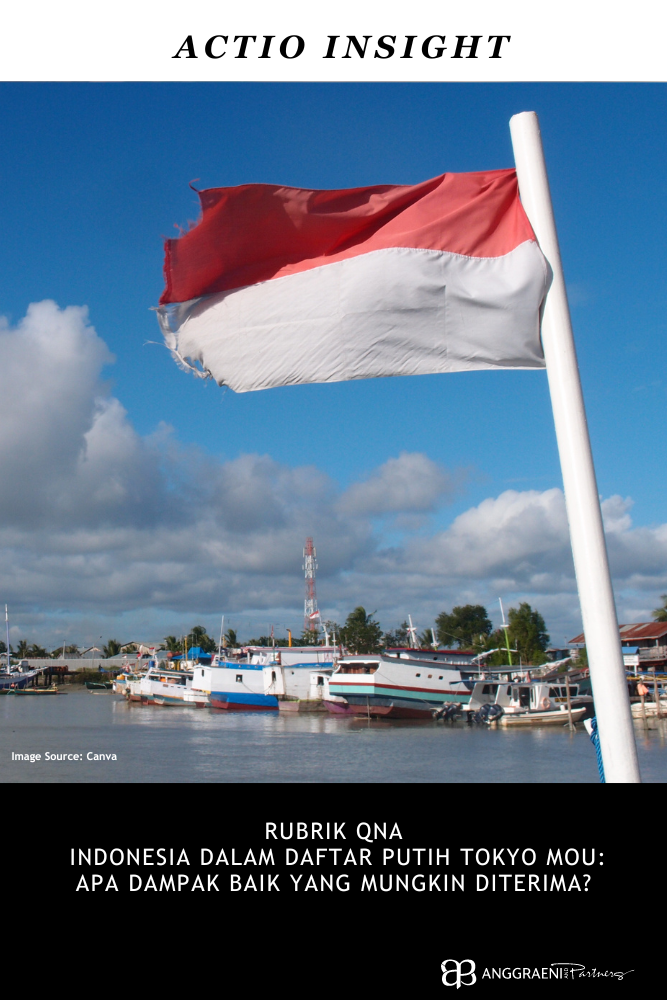- Home
- Capabilities
- ACTIO® Hub
- About Us
- Connect with Us
- AP Library
The 1997-1998 Monetary Crisis, known as Krismon, caused the US Dollar to appreciate almost 600% against the rupiah in less than one year.1 This was unprecedented for the Indonesian economy especially for Indonesian companies who had taken US Dollar denominated loans before Krismon. The crisis extended to to all US Dollar denominated contracts as Indonesian parties found it difficult to make repayment in US Dollars. More than 70% of companies listed on the capital market suddenly became insolvent or went bankrupt.2
These facts illustrate a situation that can cause a burden on both a personal financial condition as well as a corporate hardship to sustain its business activity. These situations are based on a doctrine recognised in Indonesia called financial hardship. Financial hardship, in Indonesia is called keadaan sulit, a concept originating from Anglo-Saxon jurisdictions. However, the concept in Indonesia is defined as an event that has fundamentally changed the balance of the contract, which is caused by a very high cost of contract implementation, burdening the parties that carry out the contract (debtor) or the value of contract implementation to be very less for the party receiving (creditor).
According to Agus Yudha Hernoko, Financial Hardship can lead to the following conditions:3
1) The injured party has the right to request contract renegotiation from the other party. The request must be submitted immediately by showing the basis (legal) request for the renegotiation.
2) Requests for renegotiations do not automatically give the injured party the right to terminate the contract.
3) If the renegotiation fails to reach an agreement within a reasonable timeframe, the parties can submit it to the court.
4) If the existence of a Financial Hardship is proven in court, then the court can decide to (a) terminate the contract on a fixed date and time; or (b) amend the contract by returning to a more balanced situation.
These are startling legal consequences as the Court may now become an arbiter of what is fair in the circumstances.
In Indonesia there is no regulation on financial hardship, therefore, in general, judges will decide on financial hardship issues with the provisions of overmacht.4 Overmacht, is called keadaan memaksa in Indonesia, broadly translated as Force Majeure. Courts may recognise a keadaan memaksa as a force majeure that releases party from its obligations in an agreement. It follows that there is no liability to provide compensation, costs, and interest, and / or from liability to fulfill these obligations. This is independent of whether there is a Force Majeure clause. Force Majeur is generally regulated in Articles 1244 and 1245 of the Indonesian Civil Code.
According to doctrine, Force Majeure can be divided into several classifications, one of which is absolute and relative force majeur:5
1. Absolute Force Majeure: is defined as an event where it is no longer possible to carry out the agreement, for example the machinery has been destroyed because of a fire.
2. Relative Force Majeure (not absolute) is a situation where the agreement can still be carried out, but with a commercial payment that are too large from the debtor, for example, the price of goods soaring too high.
Based on the explanation above, there are similarities in the concept of financial hardship and relative Force Majeure. Agus Yudha Hernoko also equates these two concepts.6 Events which are a condition for a financial hardship and relative force majeur are actually similar although there is a clear difference in their legal consequences. In a financial hardship, it does not result in an agreement being void, but, it gives the right to renegotiate. Whereas in a force majeure situation, it exempts the non performing party from having to pay compensation, and can also result in the agreement being declared void.
Indonesia Courts have not been unified in opinion and clarity regarding financial hardship issues. This can be seen in the decision of case number 535 / Pdt.G / 2014 / PN.JKT.PST and case No. 3087K / Pdt / 2001. In both cases, one of the parties stated that there was a 1998 economic crisis which was a forced situation. Both verdicts rejected the reasons for the economic crisis as a force majeure. However, in case 535 / Pdt.G / 2014 PN.JKT.PST, the tribunal accepted that Krismon was a change in circumstances resulting in enormous losses and the tribunal considered this event not to be the fault of the parties, adding that the event was beyond the prediction of both parties. The tribunal felt it was appropriate for the risk / loss caused by the monetary crisis to be borne by both parties with the same comparative burden. The panel of judges then determined the amount of money to be paid based on justice changing the terms of the agreement of the parties.
Although stare decisis is not a recognized principle in Indonesia, there is no doubt that such a precedent, and the legal reasoning behind the decision, will haunt lawyers and parties who are more desirous of certainty in the law. VKA/SCN/HES


